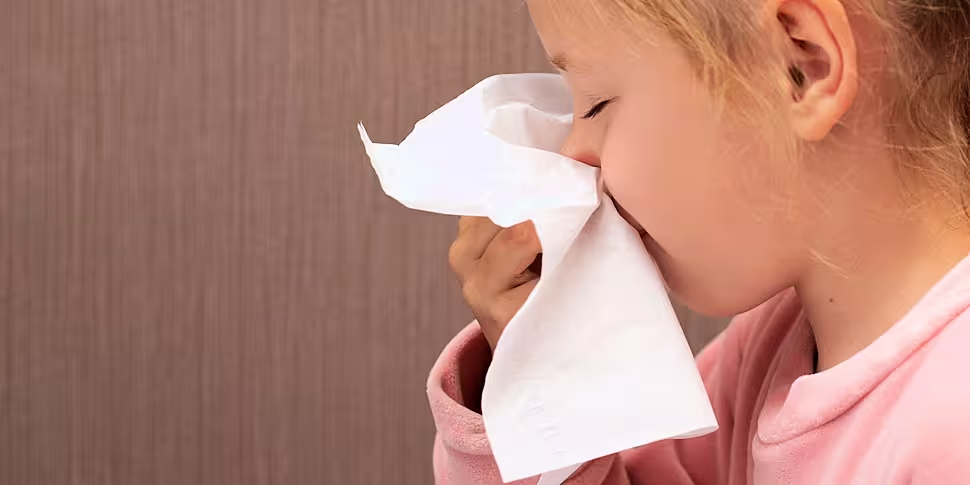Parents are being warned to be on the lookout for signs of RSV in young children and babies amid a spike in cases at hospital emergency departments.
The respiratory virus often starts out with symptoms similar to those of a common cold – before getting progressively worse.
While most cases are mild and clear up within two or three weeks, RSV can cause pneumonia and can make small infants very sick.
It can also be serious and life-threatening for older adults, and individuals with weak immune systems.
RSV
HSE Clinical Lead Dr Abigail Collins told Newstalk about the symptoms parents should be on the lookout for.
“It starts out, over the first few days, like many other respiratory viruses, with a cough, cold, runny nose and maybe low-grade fever,” she said.
“But over the first four, five or six days it gets progressively worse and parents often see that babies and young children are struggling a bit more with their breathing.”
Protection
She said there are several steps parents should be taking to protect themselves and their children.
“It is really important that everyone is good with their respiratory hygiene,” she said.
“If you know in your heart your child is unwell, don’t send them into school or into childcare.
“They might get more sick and they might get more likely to get another viral infection – but also, they are likely to spread the infection to other people if they have got lots of symptoms.”
Hospital warning
Towards the end of last week, Children’s Health Ireland warned that the spike in RSV was leading to long waiting times in the Emergency Departments in Temple Street, Crumlin and Tallaght Hospitals.
It urged parents to “trust their instinct and to always contact their GP or come to the Emergency Department if they are worried” about their child – especially if the symptoms deteriorate quickly.
The increase in cases of seasonal RSV is to be expected at this time of year.
Almost all children get RSV by the time they are two years old.
Symptoms of an RSV infection start out like a cold and can include:
- Cough
- Wheezing
- Runny nose
- Difficulty feeding or decreased appetite
- Fever (temperature of 38C or higher)
- Sore throat
The symptoms usually appear in stages and not all at once.
After four to five days, babies and young children can develop bronchiolitis. Their symptoms may get worse and include:
- Increased breathing (more breaths per minute)
- Wheezing
- Difficulty feeding or decreased appetite
- Less wet nappies
CHI says these symptoms often remain for three to four days before slowly getting better.
It can usually take 10 to 14 days before babies and young children recover from an RSV infection.
Many babies and children may have a cough that lasts for weeks after the start of the infection. This does not need antibiotics.









